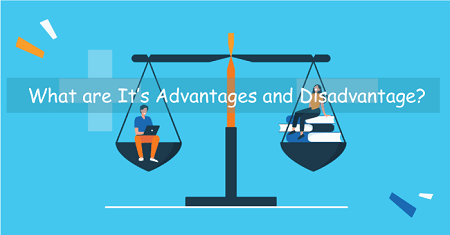Accredited Investor Defined: Understand the RequirementsWhat exactly is an Accredited Investor?An accredited investor is typically a person or a corporate organization permitted to trade securities not registered with financial authorities like SEC or others. Individuals are only considered for this privileged access, i.e., accredited investors if they meet at least one of the following criteria: income, net worth, asset size, governance position, or professional experience. 
Under Regulation D, the Securities and Exchange Commission (SEC) in the United States uses the term accredited investor to refer to financially knowledgeable investors who have a decreased need for the protection offered by regulatory disclosure reports. High-net-worth individuals (HNWIs), banks, insurance firms, brokers, and trusts are all examples of accredited investors. In-depth Understanding of Accredited InvestorsAccredited investors can acquire securities not registered with regulatory bodies like the SEC. Several businesses elect to sell shares directly to this group of authorized investors. Because this judgment exempts corporations from registering securities with the SEC, it can save them significant money. This sort of share deal is known as a private placement. However, that might expose these certified or accredited investors to significant risk. As a result, authorities must guarantee that their riskier projects are financially secure, skilled, and well-informed. When corporations opt to sell their shares to accredited investors, regulatory authorities' role is restricted to confirming or providing the appropriate standards for determining who qualifies as an eligible investor. Regulatory authorities assist in determining whether the applicant has the appropriate financial resources and awareness to take risks associated with investing in unregistered securities. Accredited investors also have preferential access to venture money, hedge funds, angel investments, and complicated, higher-risk investments and instruments. What are the requirements for Accredited Investors?Accredited investor laws differ from country to country, and a local market regulator or a competent body frequently defines and modifies them. The SEC defines an accredited investor in the United States under Rule 501 of Regulation D. To be an accredited investor, a person must have earned more than $200,000 ($300,000 for combined income) in the previous two years and anticipate earning the same or more in the current year. For the past two years, an individual must have earned income over the levels alone or with a spouse. The income test cannot be met by displaying one year of an individual's income and the next two years of combined income with a spouse. An individual is also categorized as an accredited investor if he has a net worth of more than $1 million, either individually or collectively, with their spouse. However, the main house cannot be included in this amount. The SEC also considers a person an accredited investor if they work for the firm issuing the unregistered securities as a general partner, executive officer, or director. Furthermore, a private business development corporation or an organization with assets above $5 million is considered an accredited investor. Likewise, if an entity has equity owners who are accredited investors, the entity is an accredited investor. However, a company cannot be formed with a specific objective to acquire only certain securities. What are its Advantages and Disadvantages?
Advantages
Disadvantages
Example of an Accredited InvestorExample #1Maya chooses to attempt investing in securities that other investors cannot access. As a result, she completed the prerequisites for becoming an authorized trader. She reviewed the criteria but needed help to meet the yearly income and net worth standards. Her Series 7 license, on the other hand, enabled her to seize the opportunity to become an accredited investor. Example #2Daniel decides to invest in American companies, a riskier bet than a traditional investment. Investing in a company could result in 100x profits or a complete loss. Daniel needed to invest more than $1 million of his worth. As a result, before enabling him to invest as a certified trader, an angelic validates his credentials. The trade is permitted once the accredited investor verification is completed and the investor is financially capable of sustaining losses. Accredited Investor Vs Qualified PurchaserWhile both an accredited investor and a qualified purchaser have access to private funds, there are a few distinctions that investors should be aware of. The authorities analyze the accredited participants based on their capacity to invest in particular types of securities that are free from SEC regulations. Qualified purchasers, on the other hand, desire to maximize their portfolio of assets under control. They are also known as super-accredited investors since the financial milestones for a participant, whether an individual or institutional investors are substantially greater. What investment opportunities are accessible to Accredited Investors?Under Regulation D of the Securities Act, accredited investors have access to investment options that are provided privately, and these are not publicly available options for the broader investing public. These investments are often riskier, but they have the potential for bigger returns. Traditionally, the SEC differential was used to identify individuals who were considered to be more sophisticated investors. They don't need as many layers of protection as inexperienced investors with less wealth and less financial skills and experience. Can non-accredited investors make investments?Yes. Almost every individual who registers a brokerage account has access to any publicly listed stock, bond, mutual fund, publicly traded real estate investment trust, or REIT. These investments are also available through retirement plans such as 401(k)s and IRAs. Because these assets are purposefully listed, they comply with SEC regulations that protect typical investors. But remember that every investment is not safe, and you might lose some or all of your initial investment. Therefore, always do a thorough analysis or seek professional advice before investing. Is there a different way to become an Accredited Investor?An accredited investor designation may be assigned to a business's directors, executive officers, or general partners in certain situations if the firm is the issuer of the securities being offered or sold. An accredited investor is occasionally a financial professional with a FINRA Series 7, 62, or 65 license. Other options, such as someone administering a trust with more than $5 million in assets, could be more relevant. What if someone falsifies their Accredited Investor Status?When creating a financial account, a person must represent themselves accurately. The financial company's job is to undertake its due diligence to guarantee that they are speaking the truth (e.g., requesting tax returns or bank/brokerage statements to verify income or assets). This implies that if a non-accredited investor loses money on a complicated financial instrument, they may be able to recoup part of their losses, even if they lied about their status. The Bottom LineAn accredited investor has the power and flexibility to trade securities that regular investors cannot access. Because ordinary investors invest less money than large financial organizations and high-net-worth people, they are more prone to suffer losses. Accredited Investors are experts who understand how to analyze stocks and handle their associated risks. Yet, becoming an authorized accredited investor is a time-consuming procedure that necessitates substantial study by depositories and stock exchanges. Yet, once an individual is officially designated as an accredited investor, they receive unparalleled perks and rights. |
 For Videos Join Our Youtube Channel: Join Now
For Videos Join Our Youtube Channel: Join Now
Feedback
- Send your Feedback to [email protected]
Help Others, Please Share










